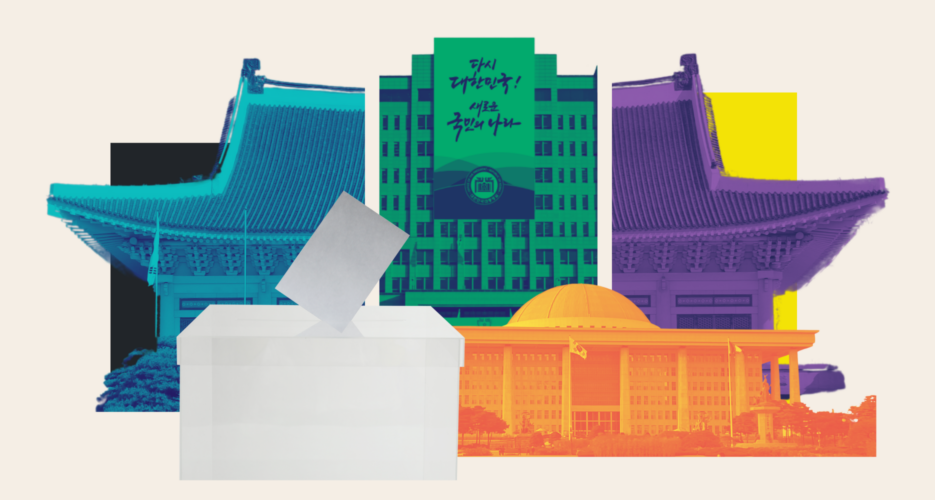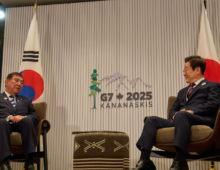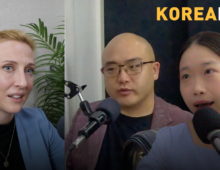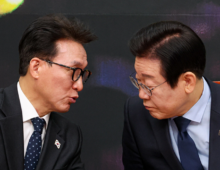Legal thresholds and campaign restrictions entrench a two-party system, limiting competition and silencing new voices
A ballot box stands before the Blue House, the Yongsan presidential office and the National Assembly, each colored in different shades representing different political ideologies | Image: ROK Presidential Office, Korea Pro, edited by Korea Pro
South Korea’s televised presidential debate on May 18 featured four candidates from across the political spectrum, but the narrow stage presence highlighted how the country’s election laws, once designed to ensure fairness, now entrench a two-party monopoly and marginalize political alternatives.
With the June 3 election fast approaching, institutional thresholds and legal constraints continue to limit who can run, what can be said and how campaigns are fought, raising structural risks for democratic competition.
South Korea’s televised presidential debate on May 18 featured four candidates from across the political spectrum, but the narrow stage presence highlighted how the country’s election laws, once designed to ensure fairness, now entrench a two-party monopoly and marginalize political alternatives.
With the June 3 election fast approaching, institutional thresholds and legal constraints continue to limit who can run, what can be said and how campaigns are fought, raising structural risks for democratic competition.
Get your
KoreaPro
subscription today!
Unlock article access by becoming a KOREA PRO member today!
Unlock your access
to all our features.
Standard Annual plan includes:
-
Receive full archive access, full suite of newsletter products
-
Month in Review via email and the KOREA PRO website
-
Exclusive invites and priority access to member events
-
One year of access to NK News and NK News podcast
There are three plans available:
Lite, Standard and
Premium.
Explore which would be
the best one for you.
Explore membership options
© Korea Risk Group. All rights reserved.
No part of this content may be reproduced, distributed, or used for
commercial purposes without prior written permission from Korea Risk
Group.












